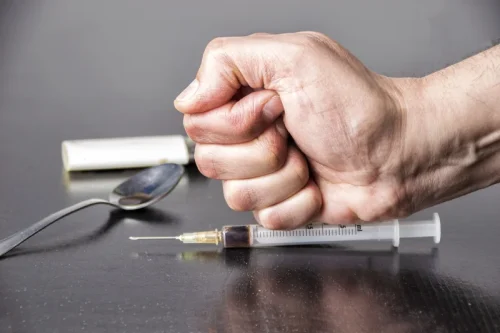
With some drugs, especially prescription medications, the individual may enter this stage through psychological dependence before a physical one can form. When this happens, the individual believes that they need the drug to be able marijuana addiction to function like a normal person. Here, the drug commonly becomes a coping mechanism for trying times, and then extends to instances where it should not actually be necessary. For example, a patient taking pain medication may begin to over-medicate, as they perceive moderate pain as severe pain. Many people with addiction issues also battle mental health conditions.
Depression Is a Manageable Condition with the Right Support
SUDsaffect the memory, motivation, learning, movement, emotion, judgment, and reward-related circuitry in the brain. You then have to continue to use the substance in order to feel happy or even normal. According to a survey by the Substance Abuse and Mental Health Services Administration,about 3 millionpeople (age 12+) used an illegal drug or abused a legal drug for the first time in 2018. The same survey showed that4.9 million peopledrank alcohol for the first time.

Stage 3: Risky Use
This is true for someone who is taking a prescription to address an ailment or a medical condition. They can be dependent on the drug in order to function properly but not be addicted to it. As you continue to drink more or choose the correct cycle of addiction. increase your dosage, your brain will then begin to build a tolerance to that new amount as well.
Step Three in the Cycle of Addiction: Tolerance and Dependence

The idea of addiction being a neurological disorder is critical to understanding its development and the recovery process. There are many types of addiction (alcohol, drugs, sex, gambling, overeating, overspending, etc.) and each type follows a consistent cycle of phases that become increasingly difficult to overcome. Depending on the person and their particular addiction, each phase may take a short or long time to develop. However, even though each phase may differ in its duration, they generally progress in a repetitive pattern until some form of treatment takes place to intervene and alleviate the addiction.
How should relapse be handled in the recovery journey? #

Detox focuses on helping people to stop taking the addicting drug as quickly and as safely as possible. BetterHelp can connect you to an addiction and mental health counselor. Over the years, a person who occasionally drinks or uses drugs casually may develop a habit that can become an addiction.
- During this stage, the person may not have any intention of continuing the use.
- For some, entry into a religious organization, self-help group or simply developing a better way of life can help.
- Drug dependence should not be mistaken for addiction or drug abuse, as these are different stages in the drug addiction journey.
- Quality addiction treatment programs focus on correcting the neurological imbalances caused by substance dependence.
For individuals in the first two stages of initial use and abuse, outpatient treatment and behavioral health counseling may be all that’s needed to get back on track. Later stages, like stages 3 and 4, may require more involved treatment. Surges of dopamine in the brain’s reward circuit cause repetition of behavior. As a person continues to use substances, the brain adapts by reducing the ability of cells in the reward circuit to respond to it. A person using substances might take more of the drug to obtain the high they felt when first taking the drug.
The action stage is intense and requires a strong commitment as individuals confront the physical and psychological challenges of withdrawal and begin to rebuild their lives. Clinical and emotional support during this stage is vital to help individuals navigate the difficulties they face and to encourage perseverance in their recovery journey. Understanding the stages of relapse—emotional, mental, and physical—and intervening early in the process enhances the chances of successful recovery.
Mental Health Matters: Addressing Social Disability Through Legal Advocacy
But relapse does not equal failure; with the right addiction treatment programs, individuals can break this cycle of addiction. For someone who is in the cycle of addiction, the next phase after the initial use of the substance is abusing the substance. Some people can drink or do drugs and never leave the initial use phase of the addiction cycle. They can simply have a drink or take a pill recreationally from time to time and not experience any adverse effects. It is very important during this stage to keep an eye out for changes in mood and behaviour, shifts in priorities, or early physical symptoms of addiction. You might sense a withdrawal from family and friends, problems with limiting the amount of drugs being used (it’s never just one) or witness unsuccessful interventions by friends or family.
Model Policies and Other Strategies to Maximize the Impact of Opioid Settlement Funds
This is sometimes viewed as a broad stage that includes forming a tolerance and dependence, but by now, the individual should already have developed a tolerance. As a result, this stage should only be marked by a dependence, which can be physical, psychological, or both. The journey to overcome addiction is filled with resilience, persistence, and hope. Recognizing the need for change, detoxifying, and moving toward sobriety show how complex this journey is23. Each step, from realizing the problem to fighting relapses, is key for lasting recovery24.

What Stage Of The Addiction Cycle Has Withdrawal Symptoms?
- As the landscape of addiction treatment evolves, integrating holistic approaches and expanding access to care remain priorities.
- After the initial recovery efforts, the focus shifts to maintenance—the ongoing process of sustaining sobriety and preventing relapse.
- Dependency and addiction are words that are sometimes used interchangeably, and though the words are similar and frequently connected in drug use, they are different.
- Of course, while crisis is the worst-case scenario for this stage, there is also a positive alternative that fits here instead.
- Remembering recovery is for life and comes with many hurdles is important.
People during this stage may develop personal concerns or feelings of shame for their behaviour, but generally, continue to justify it or make excuses. Remember, recovery is a unique and personal journey, and what works for one person may not work for another. It’s important to explore different resources, seek professional guidance, and find a support system that aligns with individual needs and preferences.
